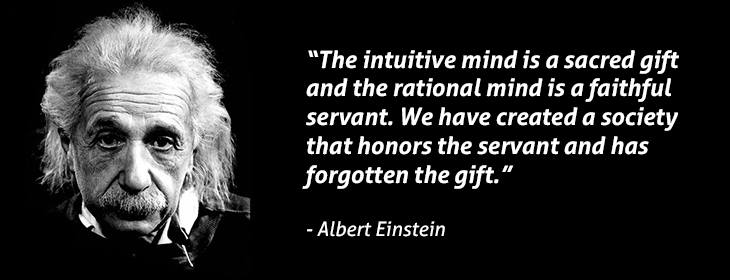
I’ve just finished listening to a great podcast with Dr Jonathan Schooler from the University of California Santa Barbara. He shared three experiments on intuition versus analysis and explained what he has termed ‘verbal overshadowing’.
Experiment Number 1
Two groups tasted a number of jams, one group was asked to taste then rank and a second group was asked to taste then reflect on and verbalise why they chose the rankings that they did. These results were then compared to the verdicts of expert jam tasters and the group that had just tasted and ranked fared much better than the group that was asked to verbalise i.e. analyse their choices, in fact they didn’t come close.
Experiment Number 2
One group of students was asked to select one of five posters to take home. Choices included impressionist paintings and animal pictures. Half of the students were first asked to analyse and write down the reasons for their choice, the other half just to select and take away.
The study found that the group that was asked explain their preferences in writing were more likely to choose the animal posters and when the researchers called them three weeks later, they were far less happy with their choice than were those who chose without having to reason. The posters were not placed on their walls and they said that they wished they had chosen differently. The ‘intuitive’ group were much happier and proudly displayed their posters.
Experiment Number 3
Two groups watched a videotape of a bank robbery. Afterwards they were asked to pick out the robber from a police identity parade. The first (intuitive) group did well, choosing the correct perpetrator with a 65 percent success rate. The second group, who were asked to provide a detailed description of the robber immediately after viewing the tape, picked the perpetrator between 35 and 40 percent of the time.
Verbal Overshadowing
I mentioned the term ‘verbal overshadowing’ before. This happens when we try to verbalise in words that which we processed automatically initially. We are in fact transferring processing from our right hemisphere (intuition) to our left hemisphere (analysis and language) and it can often turn out that the process of analysis can result in poorer decisions than when using our gut instinct.
So what does this mean for Decision-making and Leadership?
How often do we ‘trust our gut’ and immediately act on it? How conditioned have we become to need to provide evidence, analysis and rationale for our decisions when we ‘just knew’ that the first hunch was right.
As leaders, what might result if we listened more to and developed our intuition and enabled this to be a valid form of decision-making? Of course there are situations where analysis and evaluation are necessary and wise, just sometimes though, what might happen if we ‘went more with our gut’?
For a more accurate and academic version of the above experiments please click here